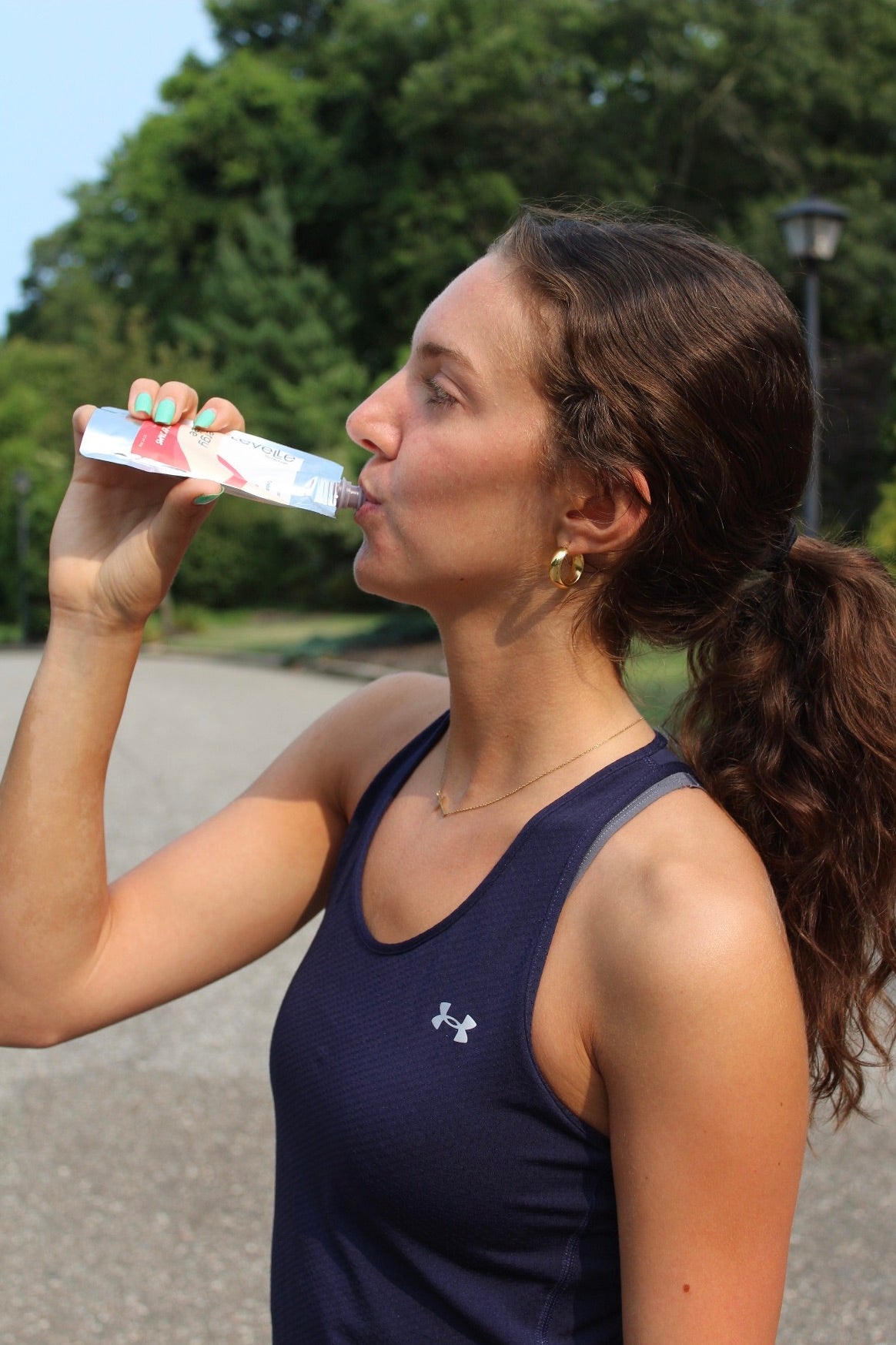
Women deserve fuel formulated for their physiology
Despite acknowledged differences between the sexes, only 2.5% of sports nutrition products target women, and most research is done on men. It's time for that to change.
It's Time for a Sex-Specific Approach to Sports Nutrition
-
Women's participation in sports is increasing
For example, female representation in the Olympics was 2% in 1900, 13% in 1964, 23% in 1984 and 48% in 2020. In recreational running, female participation has risen from under 20% in 1986 to just above 50% in 2018, the first year women's participation outpaced (get it?) men's.
-
Sex Differences Exist Down to a Cellular Level
Sex differences have been identified in every organ system and tissue (1). Meaning, a subject's sex matters, regardless of whether the subject is a cell, an animal or a human. Sex hormones have a significant influence on the body, affecting body composition, metabolism, brain function, disease and more.
-
As hormones change, so do women's needs
Women's hormones change both monthly and across the various lifecycle stages, including puberty, pregnancy and menopause. Additionally, levels can be influenced by hormone-based contraceptives. Those fluctuations should be taken into account, not ignored.

One-Size-doesn't-fit-all
Sex Matters
Physiological Differences
Metabolism, body composition and body mechanics all differ between men and women.
Sociological Differences
Societal norms, cultural expectations and individual preferences can mean differences in goals, motivations and realities.

A Multi-Layered Problem
The Research Gap(s)
- Women are underrepresented in sports and exercise research studies, comprising only 34% of participants (2). In sports performance supplement studies, women made up 23% of participants (3).
- Results from male-only studies are still frequently applied to women, despite known differences between the sexes. When women are included, results often aren't sex-disaggregated, meaning that female-specific nuances may be subsumed into the male "norm."
- Finally, studies often don't define the menstrual cycle, don't use best practices to assess menstrual status, and/or test women during the follicular phase, when their hormone levels are the lowest, i.e. they are "more like men" (4).
When Nutrition Goes Wrong
-
Low Energy Availability
Low energy availability (EA) occurs when there is an inadequate intake of calories to meet energy demands. Chronic low EA can have significant health and performance consequences. 47.3% of female athletes are at risk of low energy availability.
-
Menstrual Dysfunction
Insufficient nutrition can lead to disruptions in the menstrual cycle, such as amenorrhea (absence of menstruation), oligomenorrhea (infrequent periods), or irregular menstruation. These irregularities can impact reproductive health. Research suggests that the prevalence of menstrual dysfunction in female athletes is as high as 60%.
-
Low Bone Mineral Density
Under fueling can disrupt hormones which in turn can lead to rapid bone loss, inhibited bone regrowth, and increased risk of fractures. Women are at particular risk - they account for 80% of Americans with osteoporosis.
Making a difference
We started Levelle Nutrition after interviewing more than 100 female athletes. Here's what we learned and how we applied it:

Attention to Ingredients
Women wanted more real food options and fewer low-nutrient calories. Common concerns centered on sugar content as well as artificial ingredients.
That's why our energy purées are made solely from real food ingredients, with zero artificial ingredients and no added sugar. Our products are high in vitamin C and a good source of vitamin A.
Adherence to Dietary Restrictions
Women want their sports nutrition products to support their larger lifestyle. And they don't want to compromise while trying to pursue their passion.
That's why our products are vegan and made with gluten-free ingredients. They also avoid the FDA's top 9 allergens.*
*Due to manufacturing constraints, we currently produce in a facility that is not gluten- or nut-free. We plan to eventually move to a gluten- and nut-free facility and pursue certification.
Pregnancy and Post-Natal Activity
Women continue to be active during pregnancy and breast feeding, and they want products that are safe for both themselves and their baby.
Mother Nature understands. That's why we use only real-food ingredients, all organic and non-GMO.
Gut Health and Support
Nearly every woman we spoke with reported experiencing gastrointestinal distress as well as blood sugar spikes and crashes.
That's why our products are made with low- and mid-glycemic complex carbs. These won't spike your blood sugar as much, and will provide energy for longer. Plus, the soluble fiber from fruits helps avoid extreme digestive conditions.
Our purées are also free of maltodextrin, a common ingredient in energy gels, but one that has been shown to exacerbate gut inflammation in mice.
Reasons for Sports Activity
Women participate in sports for a lot of reasons, but one we heard repeatedly was mental health and "me" time. Others included physical health, social connections, and achieving goals. What we didn't hear? Winning.
That's why we aren't focused on performance or getting you stronger, better, faster. We want you to be your best, healthiest self, and we think that means quality ingredients, delicious taste, and the absence of intestinal stressors. We fuel women to run the world.
References
- Marts, Sherry & Keitt, Sarah. (2004). Foreword: a historical overview of advocacy for research in sex-based biology. Advances in Molecular and Cell Biology. 34. 10.1016/S1569-2558(03)34024-X.
- Cowley, E. S., Olenick, A. A., McNulty, K. L., & Ross, E. Z. (2021). “Invisible Sportswomen”: The Sex Data Gap in Sport and Exercise Science Research.Women in Sport and Physical Activity Journal, 29 (2), 146-151. Retrieved Aug 7, 2023, from https://doi.org/10.1123/wspaj.2021-0028
- Smith, E.S.; McKay, A.K.A.; Kuikman, M.; Ackerman, K.E.; Harris, R.; Elliott-Sale, K.J.; Stellingwerff, T.; Burke, L.M. Auditing the Representation of Female Versus Male Athletes in Sports Science and Sports Medicine Research: Evidence-Based Performance Supplements. Nutrients 2022,14, 953. https://doi.org/10.3390/nu14050953
- Criado Perez, Caroline.Invisible Women: Data Bias in A World Designed for Men. Harry N. Abrams, 2019.

